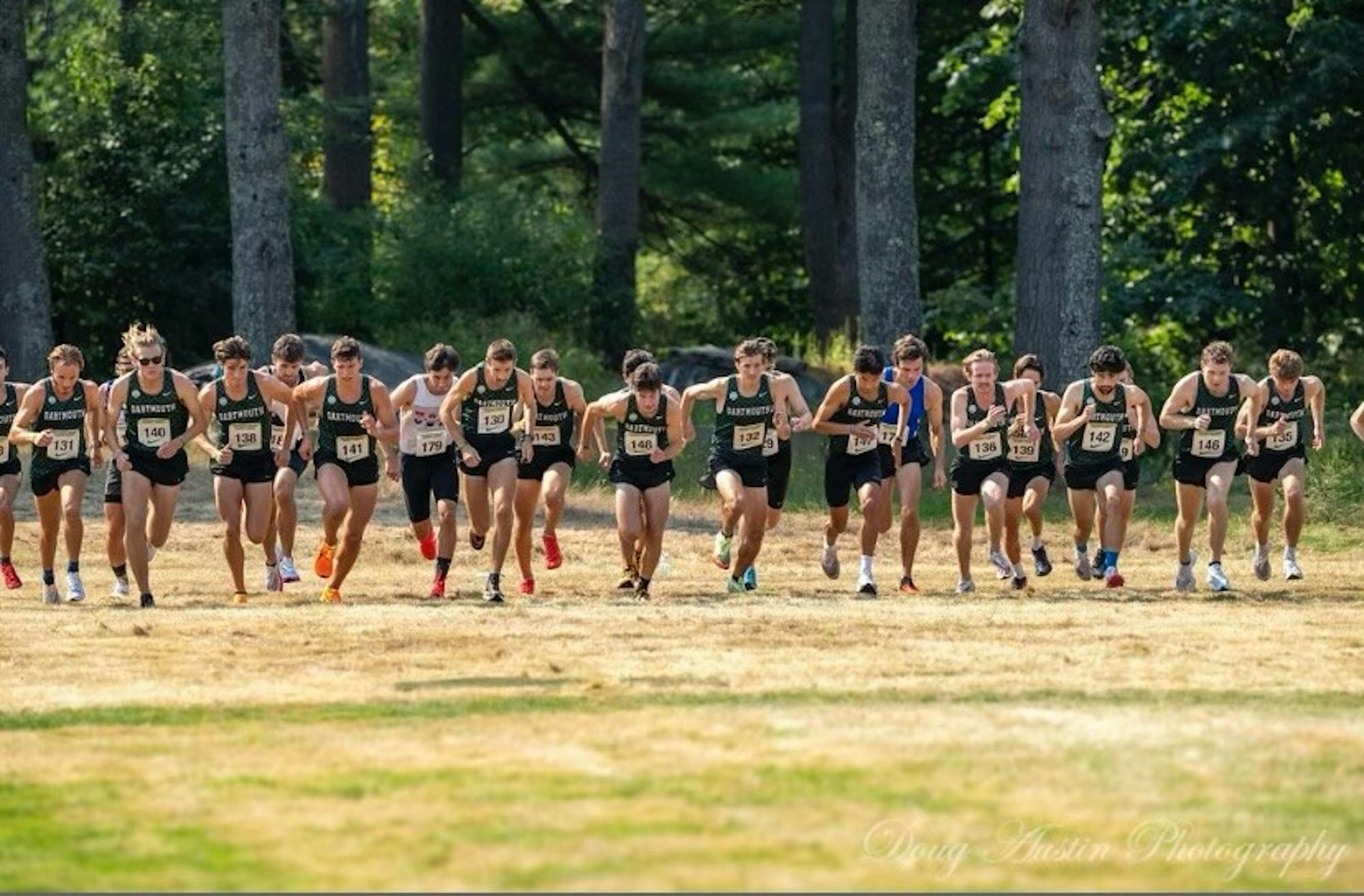If you were to ask my mom how many times after a race she’s seen me happy, the answer would be somewhere in the single digits. After most races — even the good ones — I’m usually frustrated about something bad that happened in the race. Whether it’s that I started too fast, too slow, lost focus or made poor decisions, I often fixate on the bad things immediately after. This is how lots of runners tend to feel post-race, even if a race is a personal best.
In high school, my coach taught me the “24-hour rule.” Essentially, you have 24 hours from the end of your race to be frustrated, sad, mad or have any other disappointing feelings about the race. After those 24 hours are up, the race becomes a part of the past and can no longer occupy negative space in your mind. You move forward, only taking the good things with you and not allowing the past negativity to put a limit on your training.
Last weekend, I had one of my worst races yet. The team traveled down to Franklin Park in Boston to compete in Boston College’s annual “Battle in Beantown.” The morning of the race, my glutes, hamstrings and calves were feeling pretty fatigued from the week’s workouts — not surprising given the volume of training I had been doing. Despite this fatigue, I managed to hype myself up and convince my body that it was well-rested and race-ready. As I did my final warmup stride out from the starting line, I stood in the middle of the grass field and examined the other teams standing on the line. I was determined to have a good race.
A “good race” looks different for everyone and differs between races. In some races, for some people, you will be happy to place top 10. In others, top 100. In this particular race — given that it was the sub-varsity 5k — I was looking to finish in the top five of all competitors. So, when the official pulled the trigger on the starting gun, I shot off the line and went straight to the front. That first mile, I ignored the fatigue in my legs and let my mind do the running for them. Flying through the first 800 meters in 2:20, I felt solid and confident. As I turned the corner of the first mile in 4:50, some resistance creeped into my legs. Bounding towards the notorious Bear Cage Hill, the fatigue increased and the lactic acid began to fill my quads. After climbing the hill, cresting the top and then coming back down, my legs slowed down and I dropped back 10 places. This was just under halfway through the race.
There are a couple of phrases I like to use to describe these types of moments — where the difficulty of a race begins to consume you. You could be in the hurt locker, in a cave, going to the well, dead in the water, hitting a wall or getting hit by a piano. And lucky me, this was one of those races where I got to feel like all of these. While right before the hill I was in the hurt locker, when I summited I felt like I got hit by a god damn grand piano. Coming down the hill, I was looking to recover but to no use, as each step took me deeper into a cave. Headed into the final mile, I was dead in the water. With 800 meters to go, I went to the well and began kicking as hard as I could despite moving ridiculously slow. I crossed the finish line 32nd overall — way off my goal of top five — and eight seconds slower than I had run the year before. Needless to say, this was not one of those times where my mom saw me happy after a race.
Of course, I was pissed. The nice part — but also the worst part — is that the only person I could be pissed at was myself. So, I took the next 24 hours to be frustrated and mad at myself — though I still celebrated the success of my teammates. While I had an objectively bad race, the majority of my teammates had phenomenal performances and the team got second overall — the best we have placed at this meet since 2016, when Dartmouth got first.
While the 24-hour rule isn’t perfect, and often I sometimes fail to follow it — especially after larger, more important races in which I’ve run poorly — it is one that helps me stay motivated and keep my faith in the sport. By allowing enough time to process and analyze the mistakes made, but not enough to dwell on them, I am able to move on to the next race without the burden of my last.
Some may say that you’re only as good as your last race. But, you can’t let your last race limit the potential of your next one.




